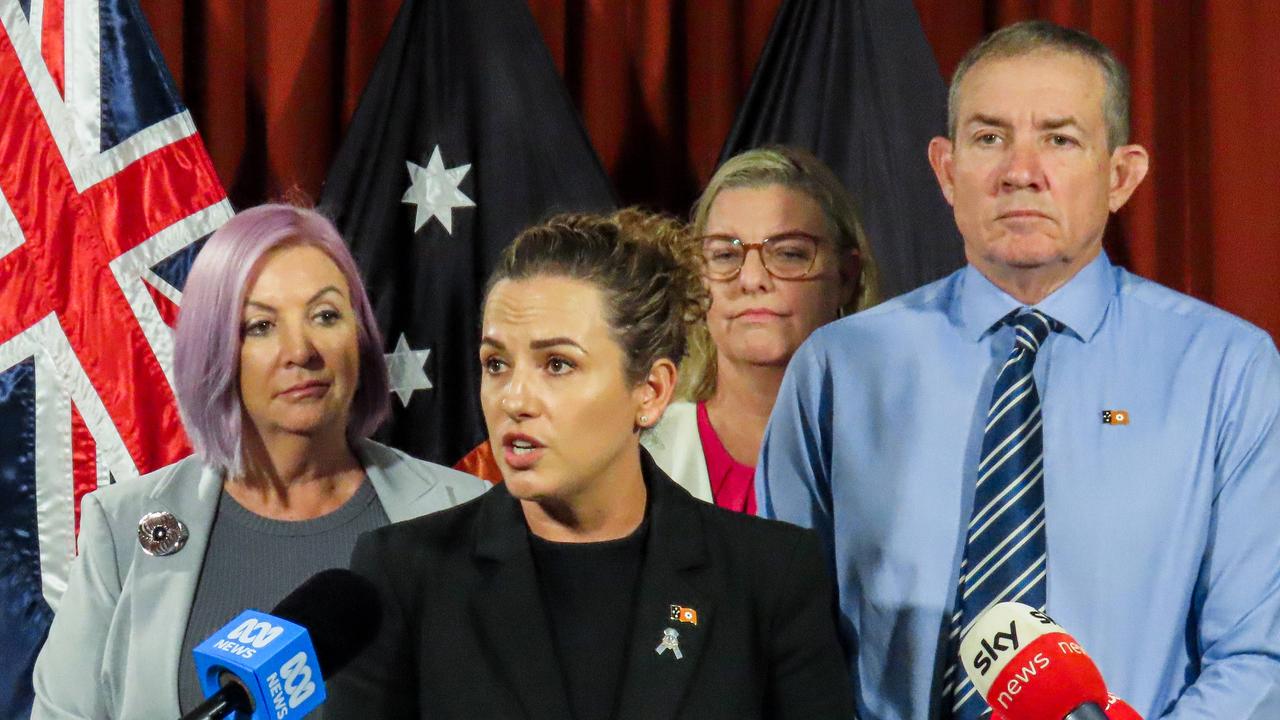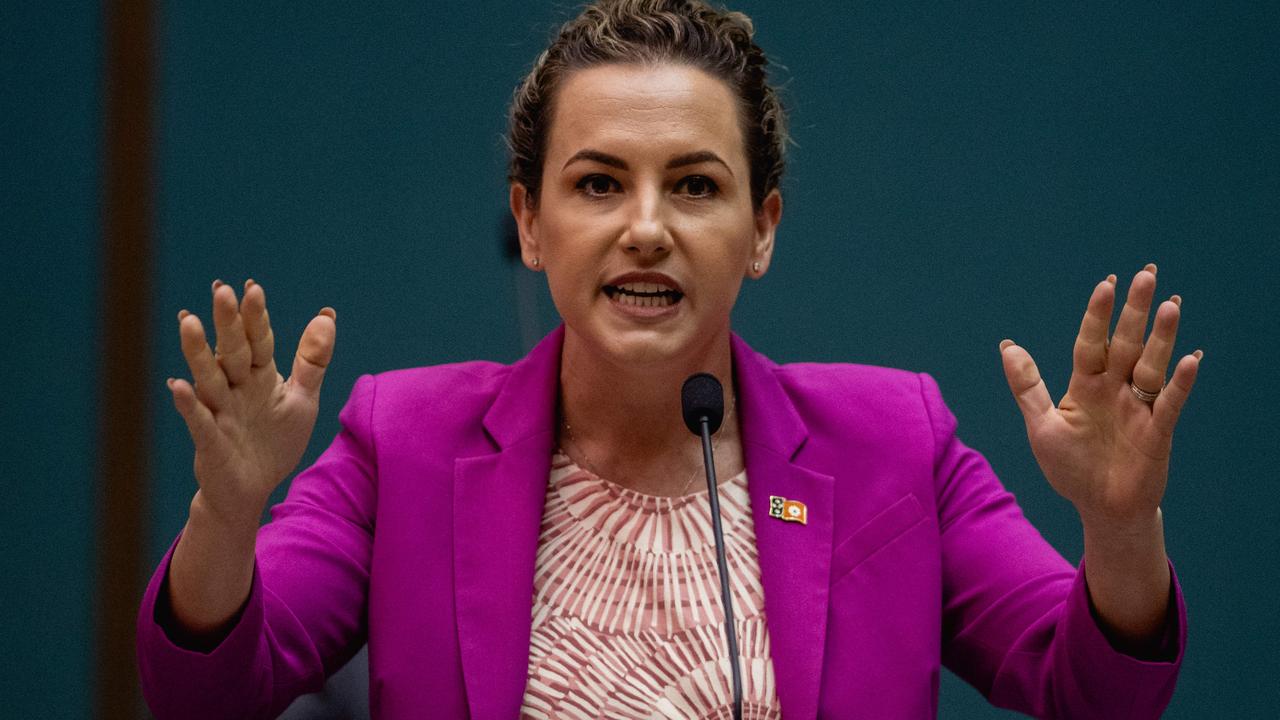Planning Minister’s call on Gardens project an ‘unconstitutional intrusion on judicial independence’, court hears
Legislative changes that scotched a controversial proposed development in The Gardens represent an ‘impermissible intrusion’ on the independence of the NT judiciary, a court has heard.

Police & Courts
Don't miss out on the headlines from Police & Courts. Followed categories will be added to My News.
- Developer vs NT government legal stoush over The Gardens Parklands rezoning rejection hits court
- NT govt’s urgent planning law changes ‘unusual’ for specifiying validity of one decision academic says
LEGISLATIVE changes that scotched a controversial proposed development in The Gardens represent an “impermissible intrusion” on the independence of the NT judiciary, a court has heard.
The Makrylos Group says its Parklands project would have pumped $800 million into the Territory economy and created 1300 jobs before it was rejected by Planning Minister Eva Lawler in July last year.
MORE TOP NT NEWS
Whopping 47.14kg of cannabis found
WA Police catch four Victorians allegedly sneaking into WA via Northern Territory
The company launched a legal challenge to Ms Lawler’s decision in the Supreme Court but before the case could be finalised, the government passed an amendment to the Planning Act specifically validating the minister’s call.
In a hearing in the Supreme Court on Wednesday, Makrylos Group’s barrister, Andrew Tokley QC, said the amendment was an unconstitutional breach of the separation of powers.
“What it does is to say to the judge ‘You don't need to decide this question — that is, the validity of my actions — that has been decided for you by the Legislative Assembly’,” he said.
“In other words, ‘There’s nothing for you to do except to give effect to my decision’.
“It is tantamount to a direction to this court to dismiss the litigation on the basis that the decision of the minister is valid.”

Mr Tokley said Ms Lawler’s comments in parliament that the amendment would “conclude” the earlier court proceedings showed the law change was directed specifically toward his client.
“It is clear from the second reading speech that the very purpose of including section 148A is to conclude Supreme Court proceedings being brought against the minister and that’s another reason why we say it’s an impermissible intrusion into the judicial process,” he said.
But NT Solicitor-General Nikolai Christrup SC said the amendment was “an orthodox provision” that “merely confirms the validity of a particular executive action”.
“It does no more, it does no less than that and the court — or the single judge which will be hearing the application for judicial review — will apply that statute,” he said.
“It’s a question of whether the legislature owns the legal consequences or if it requires the court to make findings about the legal consequences.
“That might be a direction to the court but that’s not what occurs here.”
At the time, Ms Lawler said her decision to knock back the application was based on the scale and density of the development, the significance of the nearby Botanic Gardens and the impact of additional traffic on the surrounding road network.
The Full Court reserved its decision until a date to be fixed.



